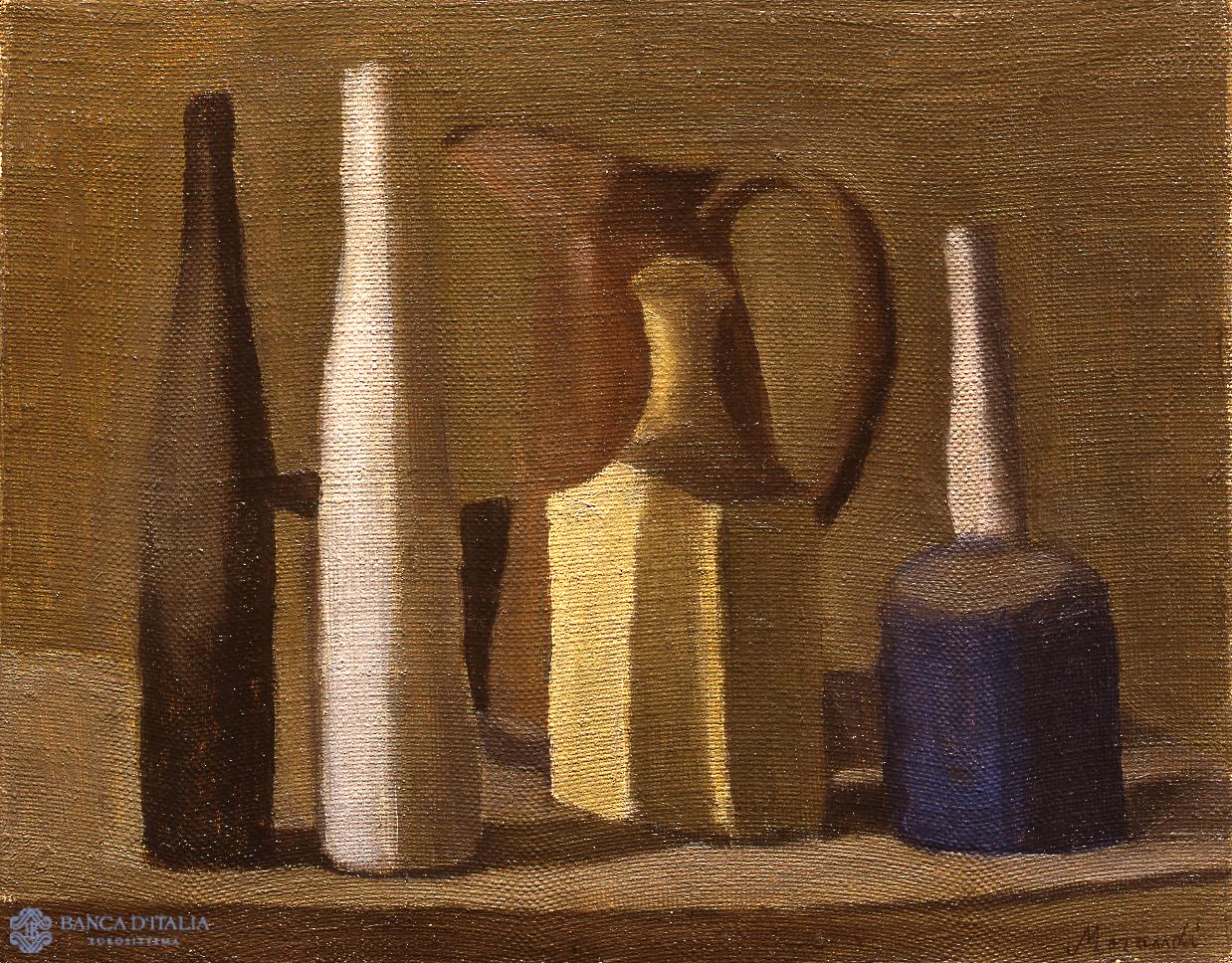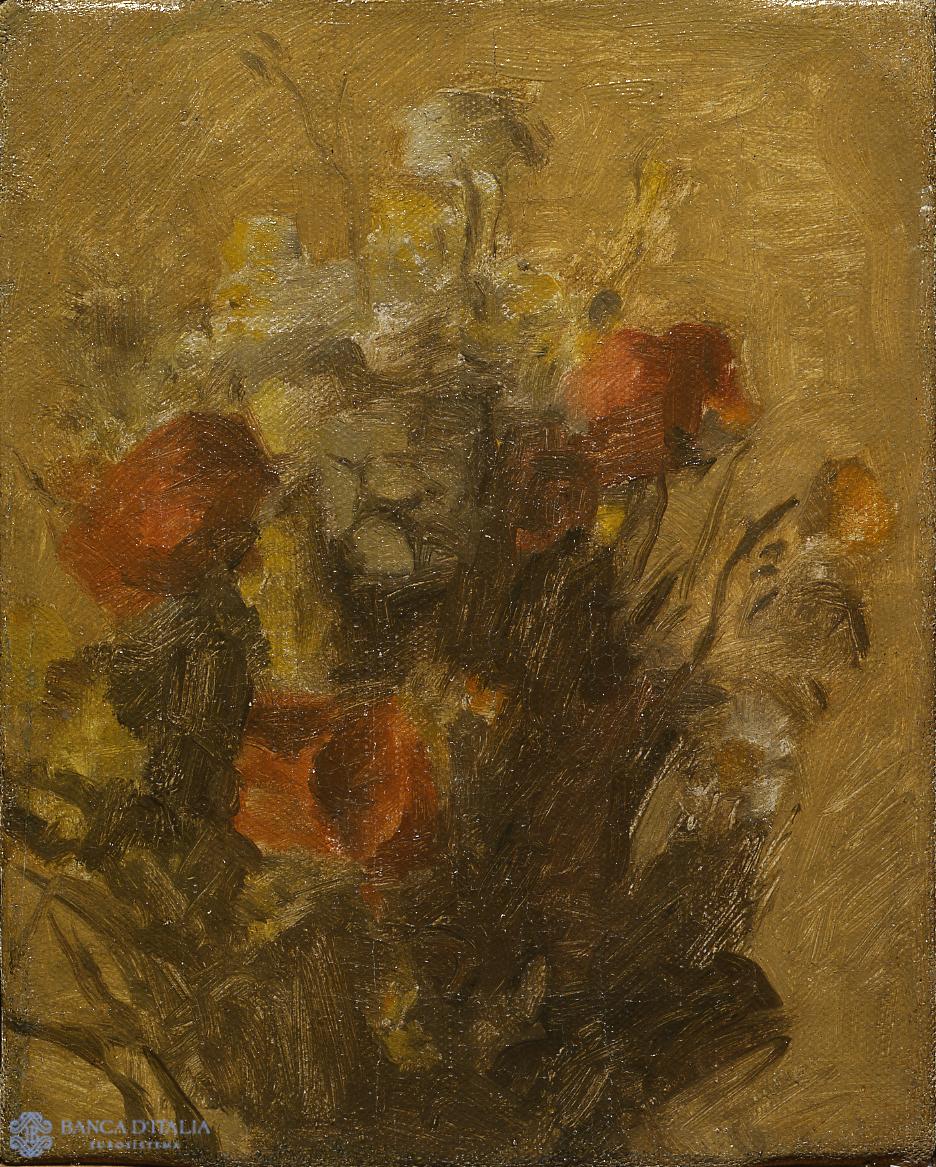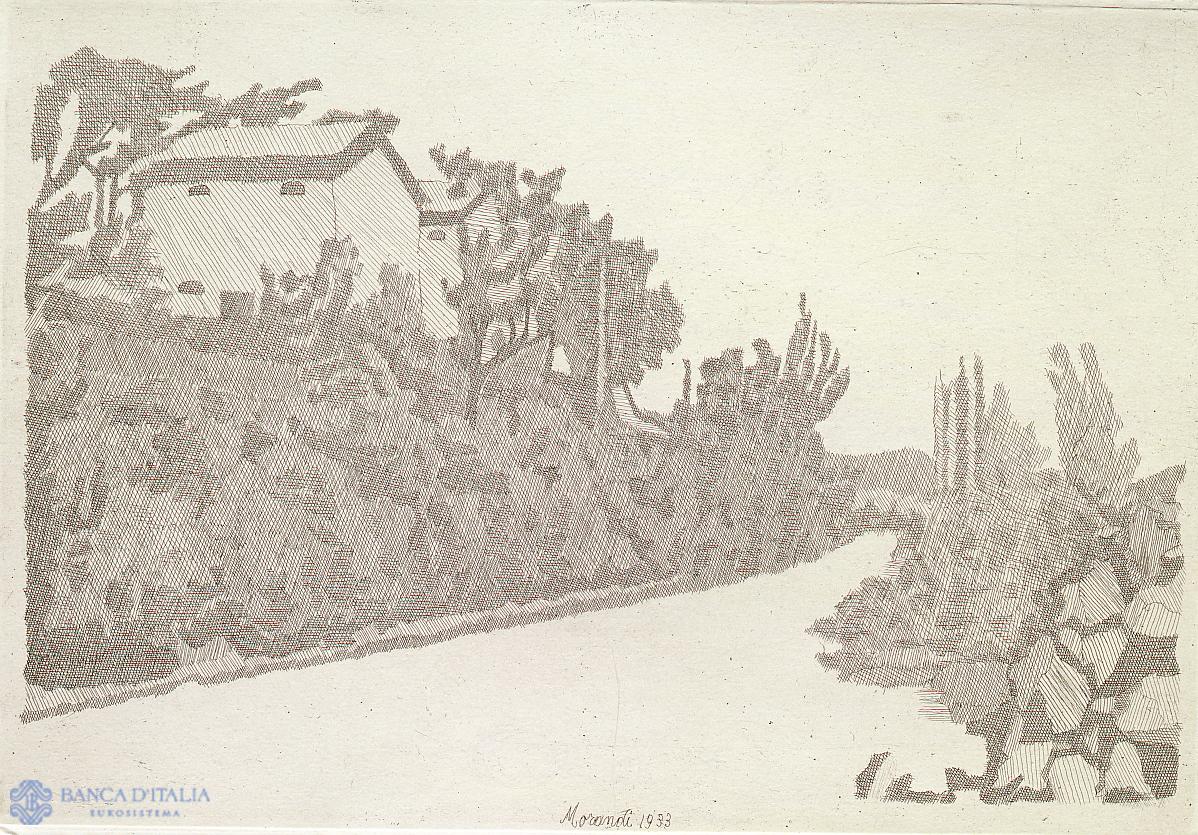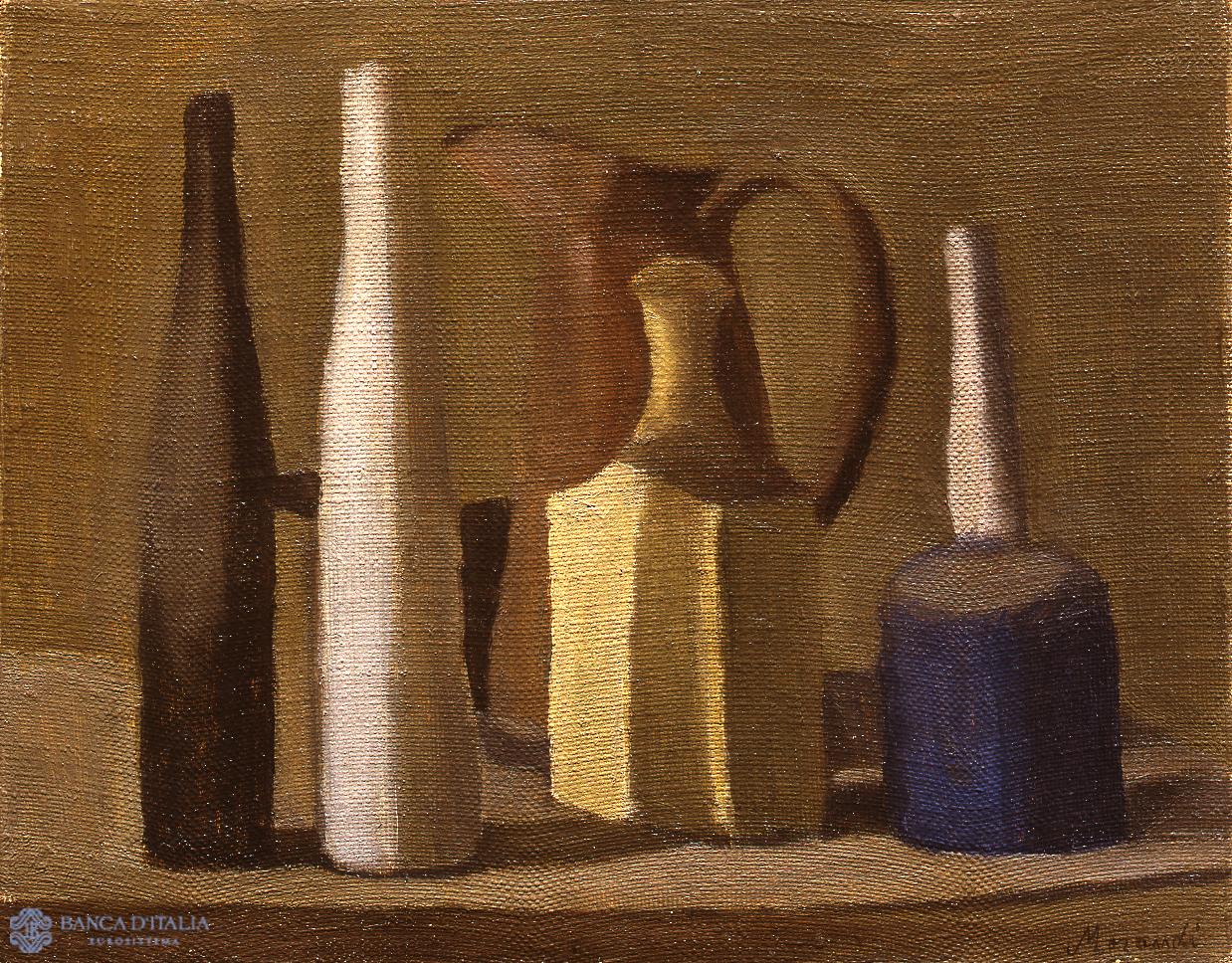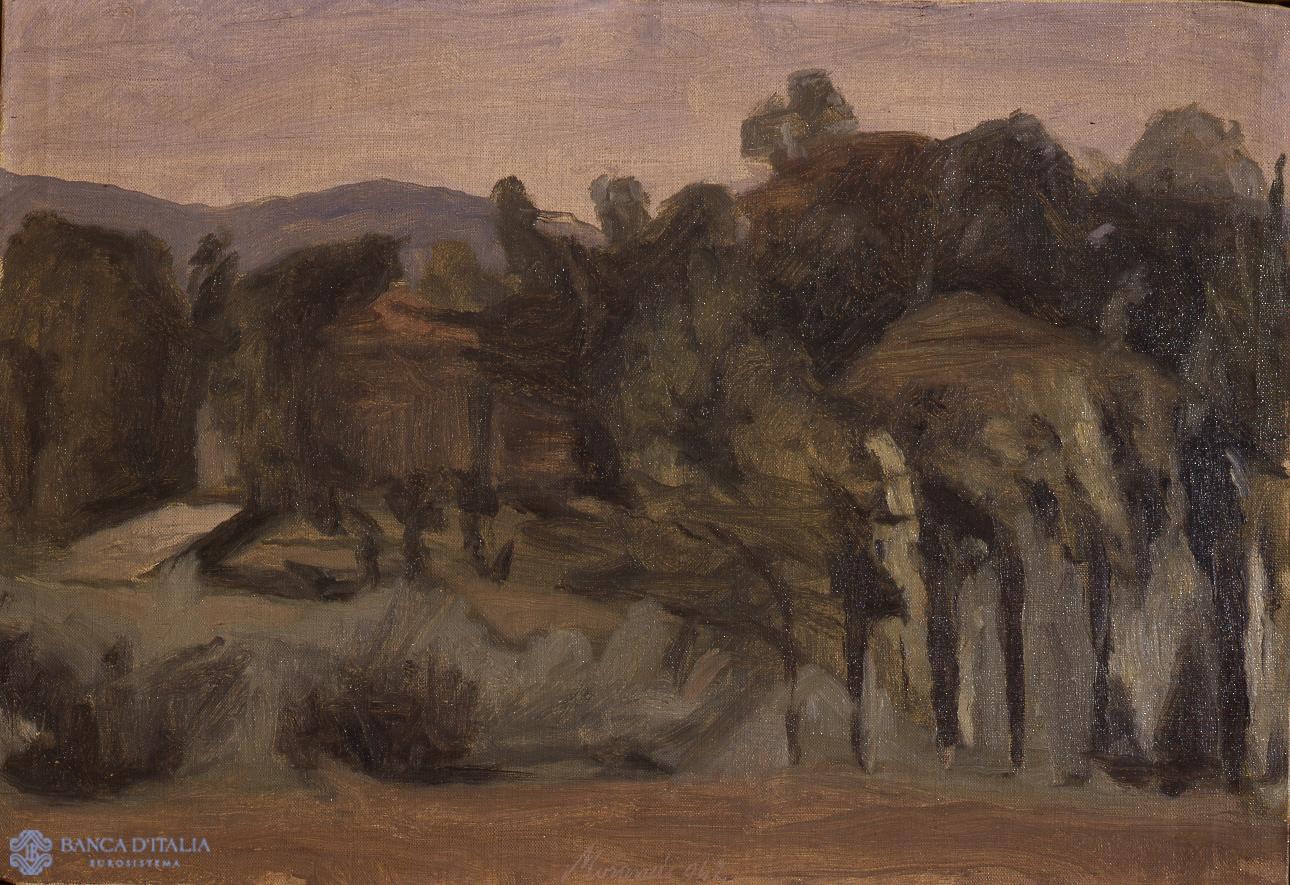Giorgio Morandi was born in Bologna in 1890. He enrolled at the Academy of Fine Arts in 1907, not getting his degree until 1913, when he had already produced his first mature paintings and etchings, both patterned after Cézanne. He was guided towards Cézanne by Ardengo Soffici, the principal influence on Morandi’s youthful course. Very likely it was thanks to Soffici that Morandi owed his brief frequentation of Futurism, culminating in several Cubo-Futurist “glass still lifes”. Next Morandi moved towards the Metaphysical painting of Carrà and De Chirico, taking part with them in the Valori Plastici movement: an experience concluded in 1920.
From 1921 on, now permanently resettled in Bologna, in his childhood home where he had his studio and the loving care of his three sisters, he cut himself off from all artistic movements and any group solidarity (only approaching, again at Soffici’s urging, the group around Mino Maccari’s Selvaggio between 1926 and 1928, publishing a good many etchings in that review); and in solitude he sought out his loftiest language. His etching work reached its acme in 1933-34 and was then practically abandoned. His painting, long ignored by the critics, gained its first important recognition with a second prize, and a very extensive dedicated room, at the third Quadriennale in Rome in 1939. This was followed by the first prize for painting at the first post-war Venice Biennale.
From then on Morandi’s fame and success grew constantly, including at international level (even though he never accompanied his works abroad, though they were exhibited in major European and American forums). If during his lifetime Morandi’s works were acquired by an elect, restricted group of collectors, mostly in Milan, after his death in 1964 he gained definitive recognition as one of the leading Italian painters of the twentieth century. His work is now sought out for leading public and private collections all over the world.
Giorgio Morandi
Giorgio Morandi (Bologna 1890 - Bologna 1964)
20th century AD
